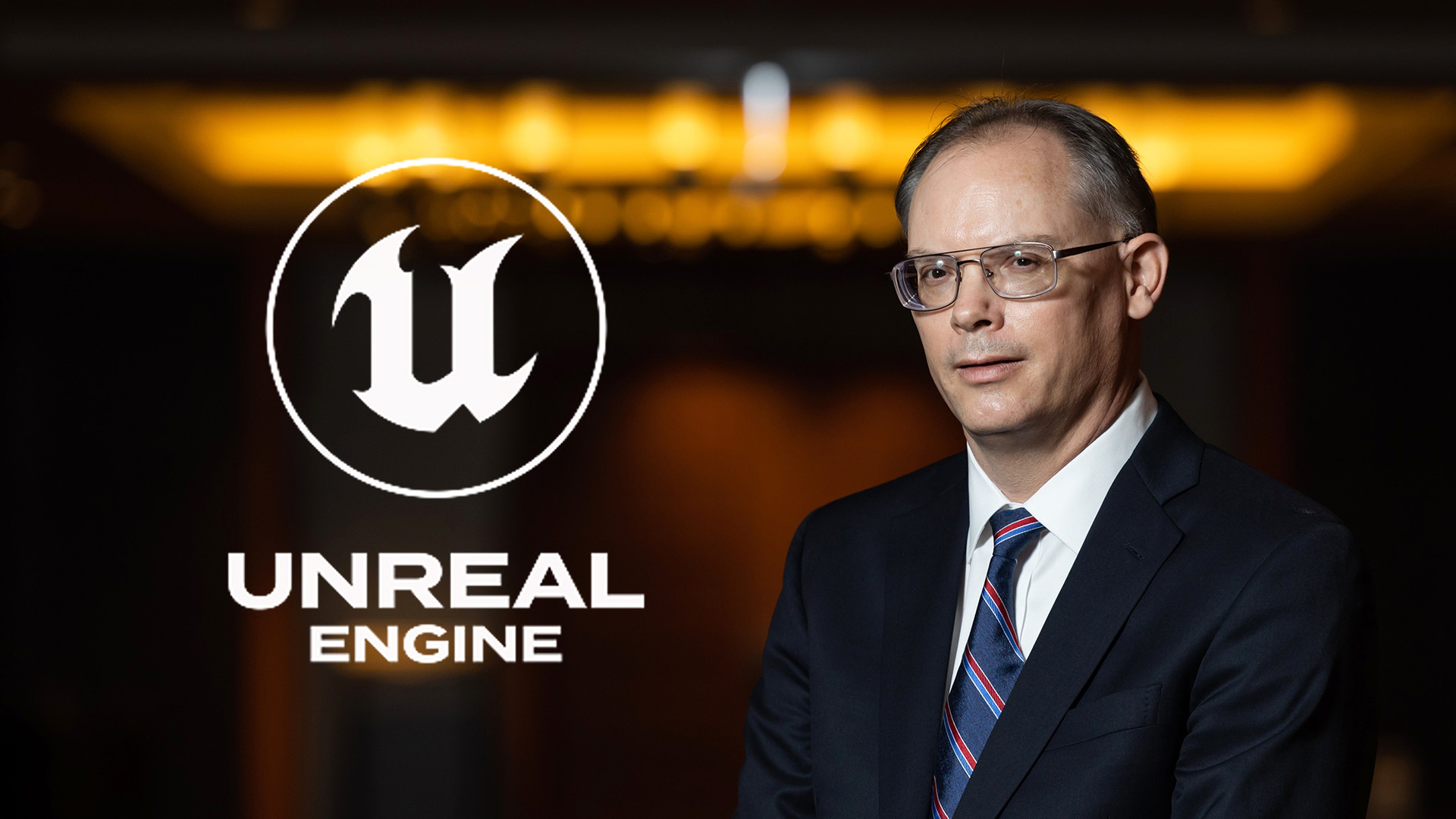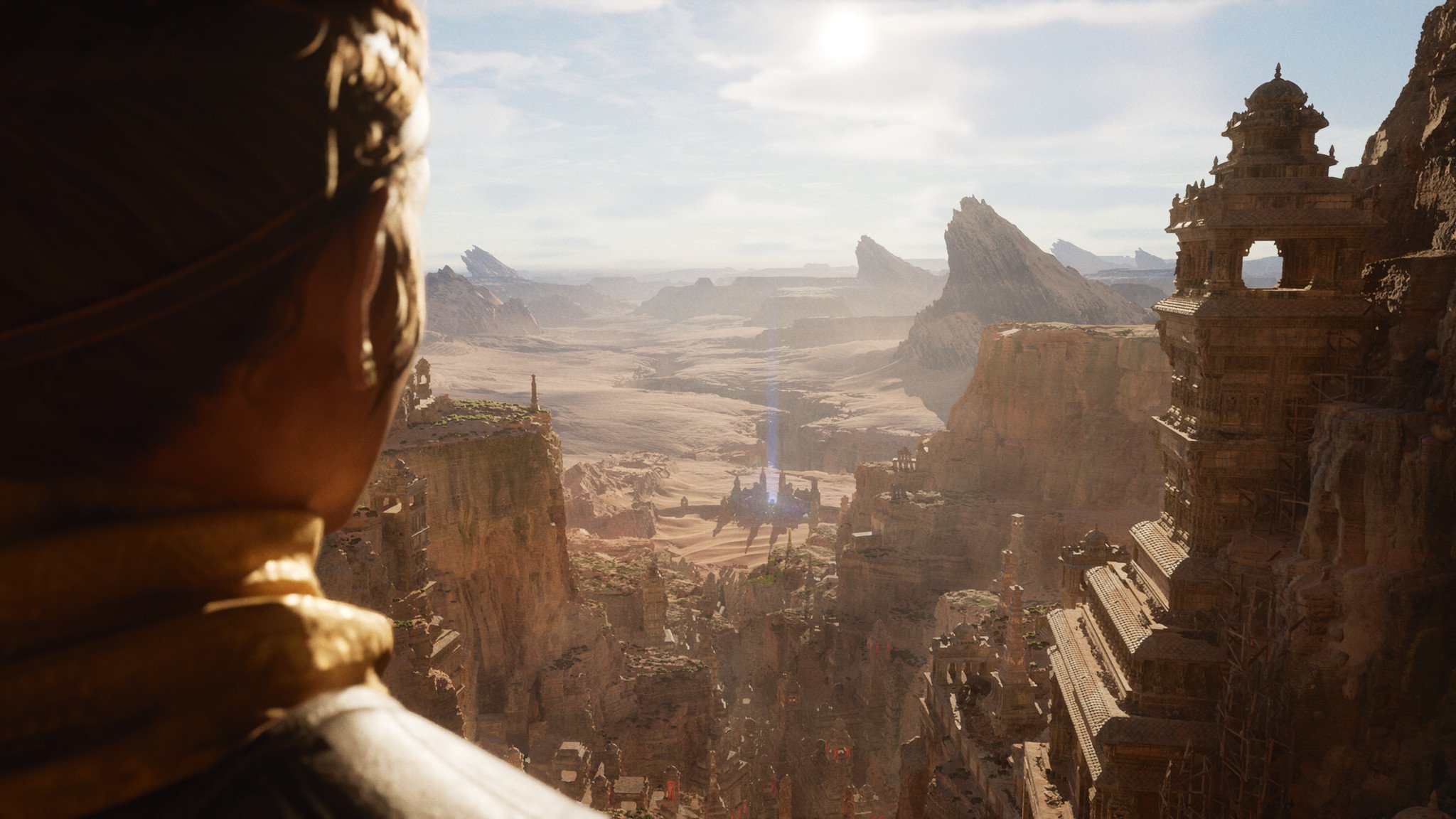Epic Games CEO Tim Sweeney says Unreal Engine 5’s performance problems aren’t about the engine — they’re about when developers choose to optimize
Games are struggling across multiple platforms, and Sweeney says optimization should start early, not at the end of development.

All the latest news, reviews, and guides for Windows and Xbox diehards.
You are now subscribed
Your newsletter sign-up was successful
There’s no doubt that Unreal Engine has become one of the most popular tools for building modern games. More and more studios are shifting to Unreal Engine 5 (UE5), including Halo Studios, which has finally left behind its long-serving Blam! Engine.
After years of tweaks through the Slipspace Engine, essentially an upgraded version of Blam! — the studio is now moving fully to UE5. The hope is that this change will ease struggles and allow contractors to use their limited time fully on development as opposed to learning a new engine.
But it’s not all smooth sailing. UE5 has earned a reputation for stunning visuals, but also for frustrating performance problems. Now, Epic Games CEO Tim Sweeney has weighed in on why so many games built with the engine are struggling.
A reputation for performance woes
UE5 was first introduced in 2020 with the Lumen in the Land of Nanite tech demo on PlayStation 5. It showed off two headline features: Lumen, a system for dynamic lighting and reflections, and Nanite, a virtualized geometry system that allows developers to use film-quality assets in real time.
The showcase was visually stunning and immediately set expectations high. However, when UE5 games started arriving, many players reported the opposite experience. Complaints of stuttering, crashes, poor frame rates, and high hardware demands quickly followed.
Titles such as Lords of the Fallen, Wuchang: Fallen Feathers, and even Xbox’s own Oblivion Remastered were criticized for struggling across platforms, including PC, Xbox Series X, and Series S.
That said, not every UE5 release has faltered. Senua’s Saga: Hellblade II and Epic’s own Fortnite stand out as examples of what the engine can do when properly optimized, proving UE5 has the potential to deliver both stunning visuals and stable performance.
All the latest news, reviews, and guides for Windows and Xbox diehards.
Epic Games CEO Tim Sweeney responds
Tim Sweeney has stepped in to address the criticism directly via This is Game, later translated by Clawsomegamer. He explained that many developers build with high-end hardware in mind first, leaving optimization for lower-spec machines until the end of production:
"The main cause is the order of development. Many studios build for top-tier hardware first and leave optimization and low-spec testing for the end. Ideally, optimization should begin early—before full content build-out."
According to Sweeney, Epic is working on solutions to make that process easier.
"We’re doing two things: strengthening engine support with more automated optimization across devices, and expanding developer education so ‘optimize early’ becomes standard practice. If needed, our engineers can step in."
It does feel like optimization has become an afterthought in recent years, with tools like DLSS and FSR, which use resolution scaling and frame generation often used to mask performance issues rather than solve them.
Game complexity is much higher than 10 years ago, so it’s hard to solve purely at the engine level; engine makers and game teams need to collaborate. We’re also bringing Fortnite optimization learnings into Unreal Engine, so titles run better on low-spec PCs.
Tim Sweeney, Epic Games CEO
Sweeney stressed that the problem can’t be fixed by the engine alone. Games are more complex than ever, and developers need to work with the engine, not against it.
In my opinion, it’s a pretty fair statement from Tim Sweeney; he’s not exactly defending Unreal Engine, but effectively calling out developers' workflows and pushing for a change in work culture and how optimization is handled.
The developer perspective on UE5 struggles
So, what are developers themselves saying? In the case of Beautiful Light, director Eric Rajot argued that poor performance is usually down to bad practices, not the engine itself. Their comments echo Sweeney’s view that optimization needs to be prioritized earlier in development.
Not all developers agree. Developers Ian Maclure from Bossa and Rocksteady's Lee Devonald have both pointed to the Xbox Series S as a limiting factor, citing its memory constraints as a major challenge. Digital Foundry has pushed back slightly on this narrative, noting that many UE5 games can scale surprisingly well on the Series S — but only with extra development time, something not every studio can afford.
Elsewhere, Warhorse’s Danial Vávra has been openly critical of UE5. Kingdom Come 2 was a standout RPG praised for its visuals, gameplay, and storytelling, but the studio chose CryEngine instead. Vávra argued that UE5 still isn’t suited to massive open-world projects, and even claimed that CD Projekt Red’s Witcher 4 team admitted the engine wasn’t ready for full-scale open-world streaming.
Unreal Engine continues to evolve, with version 5.6 arriving in June 2025. The update included shader compilation fixes, faster Lumen, Nanite foliage improvements, and more.
Still, Sweeney may have a point when he says developers should prioritize lower-spec hardware earlier in production. Doing so would naturally benefit consoles like the Series S and the Nintendo Switch 2, where performance headroom is tighter.
In the case of the Switch 2, which is the fastest-selling console launch of all time, it might make sense for developers to target weaker hardware to help ship on as many systems as possible.
It's not a problem that will be solved overnight, and some UE5 challenges may never fully disappear. Still, it’s encouraging to see Sweeney acknowledge the issue, and for Epic to show a willingness to step in and support studios that are struggling.

Adam is a Psychology Master’s graduate passionate about gaming, community building, and digital engagement. A lifelong Xbox fan since 2001, he started with Halo: Combat Evolved and remains an avid achievement hunter. Over the years, he has engaged with several Discord communities, helping them get established and grow. Gaming has always been more than a hobby for Adam—it’s where he’s met many friends, taken on new challenges, and connected with communities that share his passion.
You must confirm your public display name before commenting
Please logout and then login again, you will then be prompted to enter your display name.



